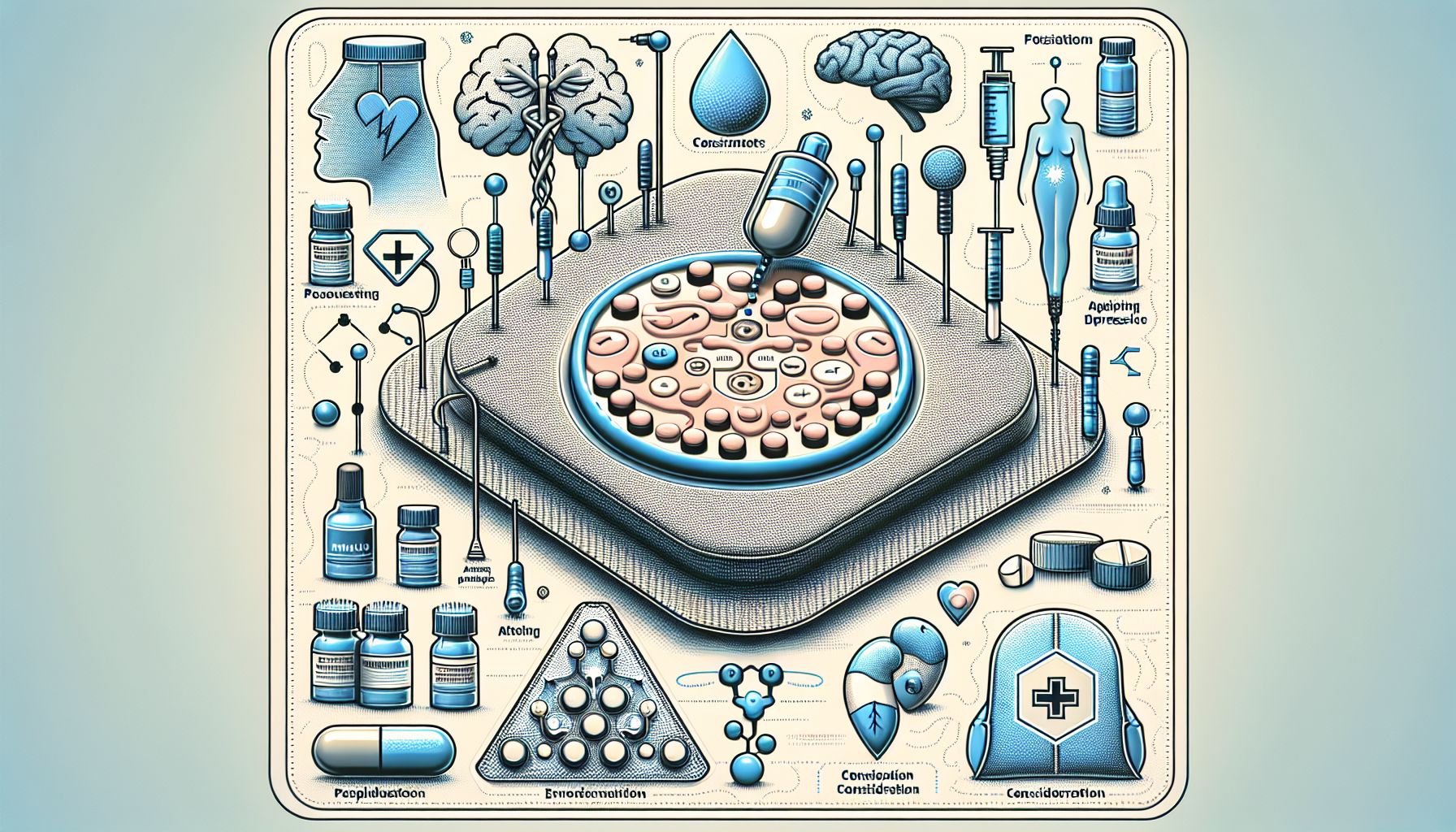
Understanding Emsam: A Comprehensive Guide
Emsam a medication that has gained attention in recent years for its effectiveness in treating certain mental health conditions. It is essential for patients and healthcare providers to understand its mechanism, usage, and potential side effects. This guide aims to provide a detailed overview of Emsam, helping you make informed decisions about its use.
What is Emsam?
Emsam is a brand name for the drug selegiline, which is administered via a transdermal patch. It belongs to a class of medications known as monoamine oxidase inhibitors (MAOIs). Initially, selegiline was used in oral form to treat Parkinson’s disease, but the transdermal patch version, Emsam, is specifically approved for the treatment of major depressive disorder (MDD) in adults.
Mechanism of Action
Emsam works by inhibiting monoamine oxidase, an enzyme responsible for breaking down neurotransmitters such as serotonin, norepinephrine, and dopamine in the brain. By preventing this breakdown, Emsam increases the levels of these chemicals, which can help improve mood and emotional balance in individuals with depression.
Indications for Use
Emsam is primarily indicated for the treatment of major depressive disorder. It is particularly beneficial for individuals who have not responded well to other antidepressant therapies. Some studies suggest that Emsam may also be helpful in treating other conditions, such as atypical depression and anxiety disorders, though these uses are off-label and should be discussed with a healthcare provider.
How to Use Emsam
Using Emsam correctly is crucial for its effectiveness and safety. Here are some key points to consider:
– Application: Emsam is applied as a patch to the skin. It should be placed on a dry, intact area of skin on the upper torso, upper thigh, or outer surface of the upper arm. It is important to rotate the application site daily to reduce the risk of skin irritation.
– Dosage: Emsam is available in several strengths, including 6 mg/24 hr, 9 mg/24 hr, and 12 mg/24 hr. The starting dose is typically 6 mg/24 hr, which may be adjusted based on the patient’s response and tolerability. Always follow the dosage instructions provided by your healthcare provider.
– Dietary Considerations: At lower doses, dietary restrictions are generally not necessary. However, at higher doses (9 mg/24 hr and 12 mg/24 hr), patients must avoid foods high in tyramine, such as aged cheeses and cured meats, to prevent hypertensive crises.
Possible Side Effects
As with any medication, Emsam may cause side effects. Some common side effects include:
– Skin irritation at the application site
– Insomnia
– Dizziness
– Dry mouth
– Headache
In rare cases, Emsam can cause severe side effects like serotonin syndrome, especially when combined with other serotonergic medications. It’s crucial to inform your healthcare provider about all the medications and supplements you are taking.
Insights from Medical Professionals
Dr. Emily Johnson, a psychiatrist, notes, “Emsam offers a unique delivery method that can be particularly effective for patients who have difficulty with oral medications. Its ability to bypass the digestive system allows for more consistent absorption.”
Pharmacist Sarah Lee adds, “Patients need to be aware of the dietary restrictions at higher doses and should always consult their healthcare provider when experiencing unusual side effects.”
Recommended Use and Purchases
If you are considering Emsam as part of your treatment plan, it is crucial to have a thorough discussion with your healthcare provider to determine if it is the right option for you. If prescribed, you can purchase Emsam from our recommended site. For more information, visit our website.
Conclusion
Emsam represents a valuable option for individuals with major depressive disorder, particularly those who have not found relief with other treatments. Understanding its mechanism, proper use, and potential side effects is essential for maximizing its benefits. Always consult with healthcare professionals to ensure safe and effective use of Emsam.
Additional Resources
For more information about depression and mental health treatments, consider visiting reputable sources such as the National Institute of Mental Health (NIMH) or the Mayo Clinic.